Short answer: No, you should avoid alcohol until you’re fully cleared by a medical professional. Even a single drink can aggravate concussion symptoms and push back the healing clock.
In the next few minutes I’ll walk you through why alcohol and a healing brain don’t mix, how long you should wait before you raise a glass again, and what safer options look like while you focus on concussion recovery. Grab a cup of tea (or water) and let’s dive in together.
How a Concussion Affects Your Brain
What actually happens after a mild traumatic brain injury
When a sudden blow or jolt makes your brain slam against the skull, a cascade of microscopic changes erupts. Neurons get stretched, a brief swelling (edema) swells, and the delicate balance of neurotransmitters goes haywire. Think of it as a tiny earthquake inside your head that rattles the wiring.
Short‑term vs. long‑term symptoms
Most people notice concussion symptoms within minutes: headache, foggy thinking, dizziness, nausea, or blurry vision. For some, these fade in a few days; for others, they linger weeks or months—a condition called post‑concussion syndrome (PCS). The longer the brain stays in this “on‑alert” mode, the more vulnerable it becomes to anything that could further disrupt its repair process.
Why the brain is extra sensitive to toxins
During recovery the blood‑brain barrier is still mending, making it easier for substances like ethanol (the alcohol in your drinks) to slip through and interfere with neural repair. According to Dr. Mark Heisig, “your tolerance for alcohol drops dramatically after a concussion, so what used to be one drink might feel like two.”
Why Alcohol Is Risky After a Concussion
Alcohol as a neurotoxin – the science
Alcohol is not just a “social lubricant.” It’s a depressant that dampens central nervous system activity and can worsen brain swelling. The American Medical Society for Sports Medicine warns that alcohol may be linked to chronic traumatic encephalopathy (CTE) when combined with repeated head injuries, even though specific guidelines on post‑concussion drinking are still vague.
Evidence that alcohol slows cognitive recovery
A study in the Journal of Neurotrauma found that participants who consumed moderate amounts of alcohol after a concussion showed slower improvement on memory and attention tests compared with abstinent peers. In plain English: the brain’s “learning curve” gets a nasty detour.
Alcohol amplifies common concussion symptoms
Ever felt a pounding headache after a few drinks? Multiply that by the already‑elevated headache from a concussion, and you’ve got a recipe for disaster. Alcohol can:
- Intensify dizziness and balance problems.
- Trigger nausea and vomiting.
- Disrupt sleep—the very fuel your brain needs to heal.
- Increase fatigue and mental fog.
Masking symptoms – a hidden danger
When you’re tipsy, it’s easy to mistake alcohol‑induced fog for “just a lingering concussion.” This can lead you to underestimate how far you’ve actually recovered and, worse, push you into situations where another head injury is possible. The Model Systems Knowledge Translation Center (MSKTC) notes that alcohol use after a brain injury raises the risk of a repeat concussion, compounding damage.
How Long Should You Wait Before Drinking?
General recommendation from experts
Most clinicians echo Dr. Heisig’s concise advice: wait until you’re 100 % symptom‑free and have a medical clearance. That doesn’t mean “feel a little better,” but “no headaches, no dizziness, no visual disturbances, and normal neurocognitive testing.”
Factors that influence the waiting period
- Severity of injury: Loss of consciousness or amnesia usually means a longer wait.
- Age: Younger brains heal faster, but teenagers often have higher alcohol sensitivity.
- Medications: Pain relievers, sleep aids, or anti‑inflammatory drugs can interact with alcohol.
- Personal health history: Prior concussions, migraines, or a history of alcohol use disorder extend the timeline.
Suggested timelines (typical ranges)
| Injury Severity | Typical Symptom Duration | Suggested Minimum Wait Before Alcohol |
|---|---|---|
| Mild (no loss of consciousness) | 3–7 days | 2–3 weeks |
| Moderate (brief loss of consciousness, amnesia) | 1–2 weeks | 4 weeks |
| Severe (prolonged symptoms, PCS) | >2 weeks, often months | 6 weeks + and cleared by a clinician |
When a “green light” is given
Doctors usually run a short battery of checks before saying “you’re good to go.” Look for a symptom checklist like:
- No headache or pressure for 24 hours.
- Stable balance and gait on a Romberg test.
- Clear scores on a computerized neurocognitive test (e.g., ImPACT).
- Normal vestibular‑ocular reflexes.
Real‑world testimonial
Jenna, a college soccer player, waited six weeks after a moderate concussion before sipping a single glass of wine. She reports that the “light buzz” felt far stronger than it would have pre‑injury, confirming that her brain was still sensitive. “If I’d had that drink earlier, I’d probably have been back in the clinic with headaches for weeks,” she says.
Safe Drinking Limits – If and When You’re Cleared
What “easy on the bottle” really means
Once you have the all‑clear, most experts suggest staying at or below one standard drink per day (≈ 14 g of pure alcohol) and absolutely avoiding binge drinking (four or more drinks in two hours). The key is moderation, not celebration.
Does the type of alcohol matter?
Whether it’s a light beer, a glass of wine, or a mixed drink, the ethanol content is what counts. A 12‑oz beer at 5 % ABV, a 5‑oz glass of wine at 12 % ABV, or a 1.5‑oz shot of 40 % spirits all deliver roughly the same amount of alcohol. Choose the option you can track most easily.
Monitoring your symptoms after a drink
Keep a simple three‑day log:
| Day | Drink(s) Consumed | Headache (0‑10) | Dizziness (0‑10) | Sleep Quality (1‑5) |
|---|---|---|---|---|
| 1 | 1 beer | 2 | 1 | 4 |
| 2 | 0 | 0 | 0 | 5 |
| 3 | 0 | 0 | 0 | 5 |
If any score spikes, stop drinking and let your clinician know.
Hydration & nutrition tips
Alcohol dehydrates you, which can worsen headaches. Pair every drink with a glass of water, and snack on protein (nuts, cheese, lean meat) to slow alcohol absorption. Omega‑3‑rich foods (salmon, walnuts) also support neuro‑repair.
When to stop immediately
Any of the following after a drink should be a red flag:
- New or worsening headache.
- Return of dizziness, nausea, or vomiting.
- Difficulty concentrating or speaking.
- Feeling unusually sleepy or unable to stay awake.
If one of these shows up, pause the alcohol and call your healthcare provider.
Alternatives & Recovery Strategies That Support Healing
Non‑alcoholic “social” drinks
Enjoy the ritual without the ethanol. Try sparkling water with a splash of citrus, a rosemary‑infused mocktail, or a warm herbal tea. The act of raising a glass can still feel celebratory.
Sleep hygiene & stress reduction
Sleep is the brain’s night‑shift repair crew. Aim for 7–9 hours of uninterrupted sleep, keep screens out of the bedroom, and consider a short, calming bedtime routine (reading, gentle stretches). If anxiety spikes, a short guided meditation can keep cortisol low.
Nutrition that promotes neuro‑recovery
Focus on antioxidant‑rich fruits (berries), leafy greens, and lean proteins. These foods supply the building blocks for new neural connections and help combat inflammation.
Gradual return to activity
Follow the “step‑wise” protocol used in sport‑medicine:
- Rest until symptom‑free.
- Light aerobic activity (walking, stationary bike) for 10‑15 minutes.
- Sport‑specific drills without contact.
- Full‑contact practice.
- Return to competition.
Only move to the next step when the previous one stays symptom‑free for 24 hours.
Professional support options
If you’re struggling with cravings or notice that you can’t stay abstinent, consider a concussion clinic that also offers addiction counseling. Complete Concussions integrates TBI care with substance‑use treatment, giving you a one‑stop safety net.
When to seek medical help
Contact a provider if any of these occur:
- Symptoms persist beyond two weeks.
- You experience a second head injury.
- Alcohol cravings feel out‑of‑control.
- New neurological signs (vision changes, seizure‑like activity).
Expert Insights & Credible Sources
Interview snippet from a sports‑medicine neurologist
Dr. Maya Patel, MD, explains, “The safest route is zero alcohol until the brain’s baseline is restored. Even low‑dose alcohol can re‑ignite inflammation that the concussion already set off.”
Key guidelines you can trust
Both the 2016 Berlin Consensus Statement on concussion in sport and the American Medical Society for Sports Medicine position paper acknowledge that alcohol may complicate symptom assessment but stop short of giving explicit drinking limits—highlighting the need for clinicians to err on the side of caution.
Data highlights
According to the UK’s NICE guidance, up to 65 % of head injuries are alcohol‑related, underscoring the intertwined nature of alcohol use and concussion risk.
Bottom Line – Quick Reference Cheat Sheet
- Don’t drink until you’re 100 % cleared.
- Wait 2–6 weeks depending on injury severity.
- If cleared, limit to ≤ 1 drink/day, stay hydrated, and monitor symptoms.
- Choose non‑alcoholic alternatives for social occasions.
- Seek help if you can’t stay abstinent or symptoms linger.
Conclusion
Choosing to skip alcohol while your brain pulls itself back together isn’t a punishment—it’s an act of self‑care. By giving your concussion the quiet, toxin‑free environment it needs, you’re setting the stage for a smoother, faster recovery and protecting yourself from a possible spiral of repeat injuries.
What do you think? Have you ever faced the temptation of a celebratory drink while still feeling foggy after a bump? Drop a comment below, share your story, or ask any lingering questions. And if you need a personalized plan, consider reaching out to a concussion specialist—your brain will thank you.


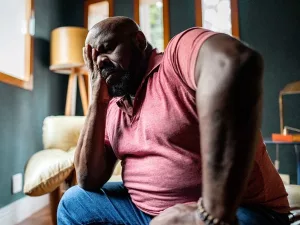
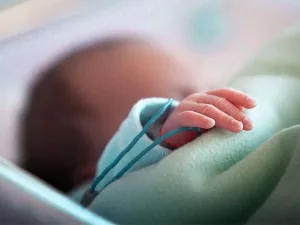






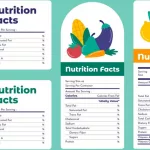
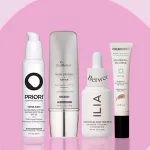

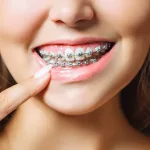
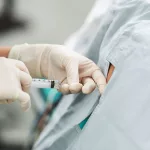
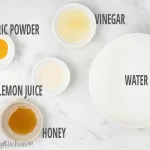
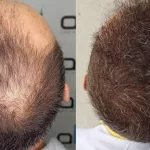
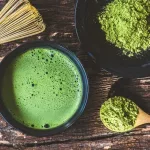
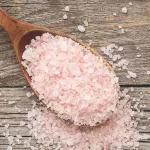
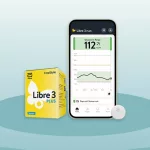




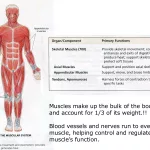
Leave a Reply
You must be logged in to post a comment.